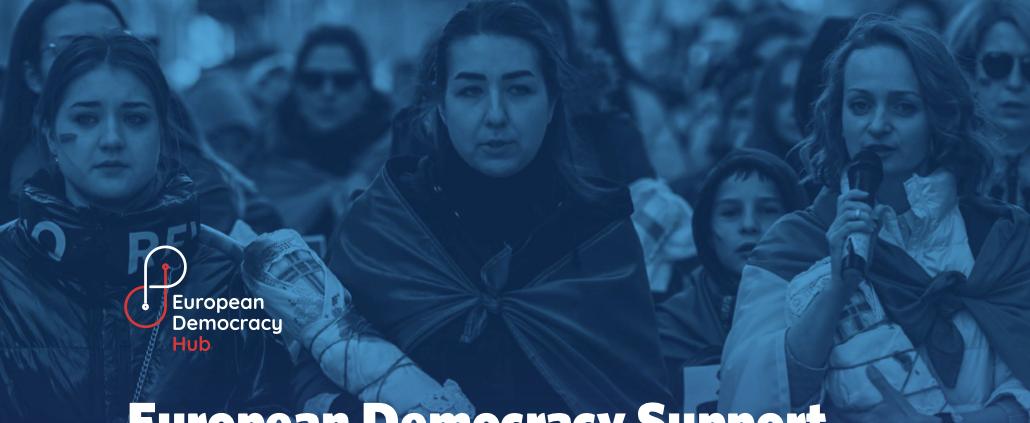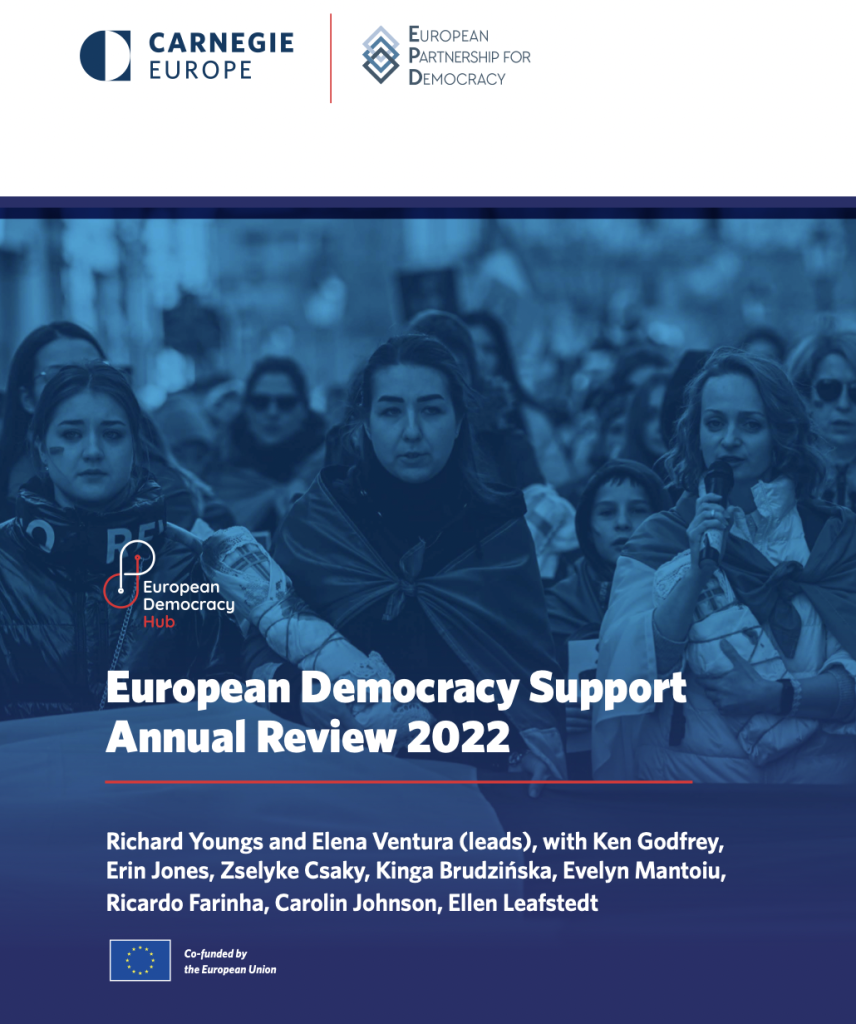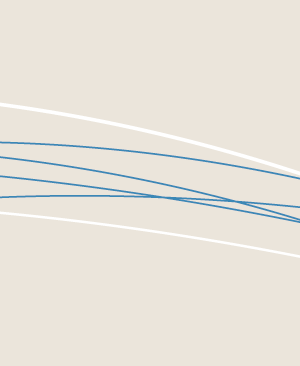The Impact of the War in Ukraine on Central and East European Support for Democracy in 2022
Russia’s invasion of Ukraine distracted the Central and East European (CEE) governments from a clear and consistent focus on democracy support in 2022. CEE leaders, like in other parts of Europe, focused more on increasing their own defense budget and capabilities and military aid to Ukraine, rather than boosting their democracy commitments.
However, the invasion did not alter all aspects of their democracy policy. Quite the opposite; in the Czech Republic, for example, the election of the new president General Petr Pavel and the new government led by Prime Minister Petr Fiala have pushed the country in a direction more supportive of democracy and human rights protection than in previous years. Lithuania was the most vocal European country on the Taiwan issue, opening a trade office in Taipei in November 2022. In protest of China’s „no-limits“ friendship with Russia, Estonia and Latvia left the 16+1 initiative, a Beijing-backed forum aimed at boosting relations with East European countries. Finally, once elected, Slovenia’s first ever female president, Nataša Pirc Musar, reiterated her pledge to promote fundamental rights and democracy.
While the country priorities have not changed for many CEE countries – for example Ukraine, Belarus and Moldova remained important for Poland and the Baltic states, and the Western Balkans for Slovenia, Slovakia and Croatia – the war in Ukraine has shifted CEE focus and efforts. The most visible challenge for the democratic movement was observed in Belarus, which suffered from significantly less attention in 2022. Still, Lithuania continued to provide a safe haven for Belarusian opposition leader Sviatlana Tsikhanouskaya, and Austria provided €50,000 to a training program for Belarusian civil society.
Thematic approaches also remained unaffected in 2022. For example, Estonia’s priority was to strengthen democracy and empower local governments in Eastern Partnership countries. Latvia funded new projects on countering disinformation in Moldova; on inclusive human rights education in Georgia, Moldova, and Ukraine; and on capacity building for judicial reform in Ukraine. Media freedom was another issue that received increasing attention, and Austria organized a conference on the safety of journalists.
To sum up, the security aspects of the strategic landscape on the East European border were diluted but did not undermine CEE democracy commitments in 2022. Moreover, similarly to recent years, while Central and East European states generally increased their democracy funding and were better at quantifying democracy support, its prominence in CEE foreign policy priorities and the scale remains extremely modest. For example, while Poland, the biggest CEE country, allocates €7.5 million in 2022 for the Solidarity Fund PL, a state-funded entity whose activities are dedicated to democracy support, Denmark disburses €266 million to programs classified as “Government and Civil Society – General”. Finally, the illiberal political developments in Hungary and Poland keep sapping CEE’s credibility in providing democracy support and defending human rights abroad. Hungary and Bulgaria remain largely absent among Ukraine’ supporters and democracy promoters.
These are only a few of the findings of the Annual Review of European Democracy Support in 2022, published by the European Democracy Hub, a joint initiative of Carnegie Europe and the European Partnership for Democracy that aims to inform debates about policies geared toward upholding democracy internationally.
To learn more about Central and East European Support for Democracy and about policies, strategies, and initiatives at the level of the European Union (EU) as well as those of its Member States and of non-EU European countries active in democracy support (Norway, Switzerland and the United Kingdom), please visit here
From the IDM, Research Associate Dr Kinga Brudzińska contributed to the report.




